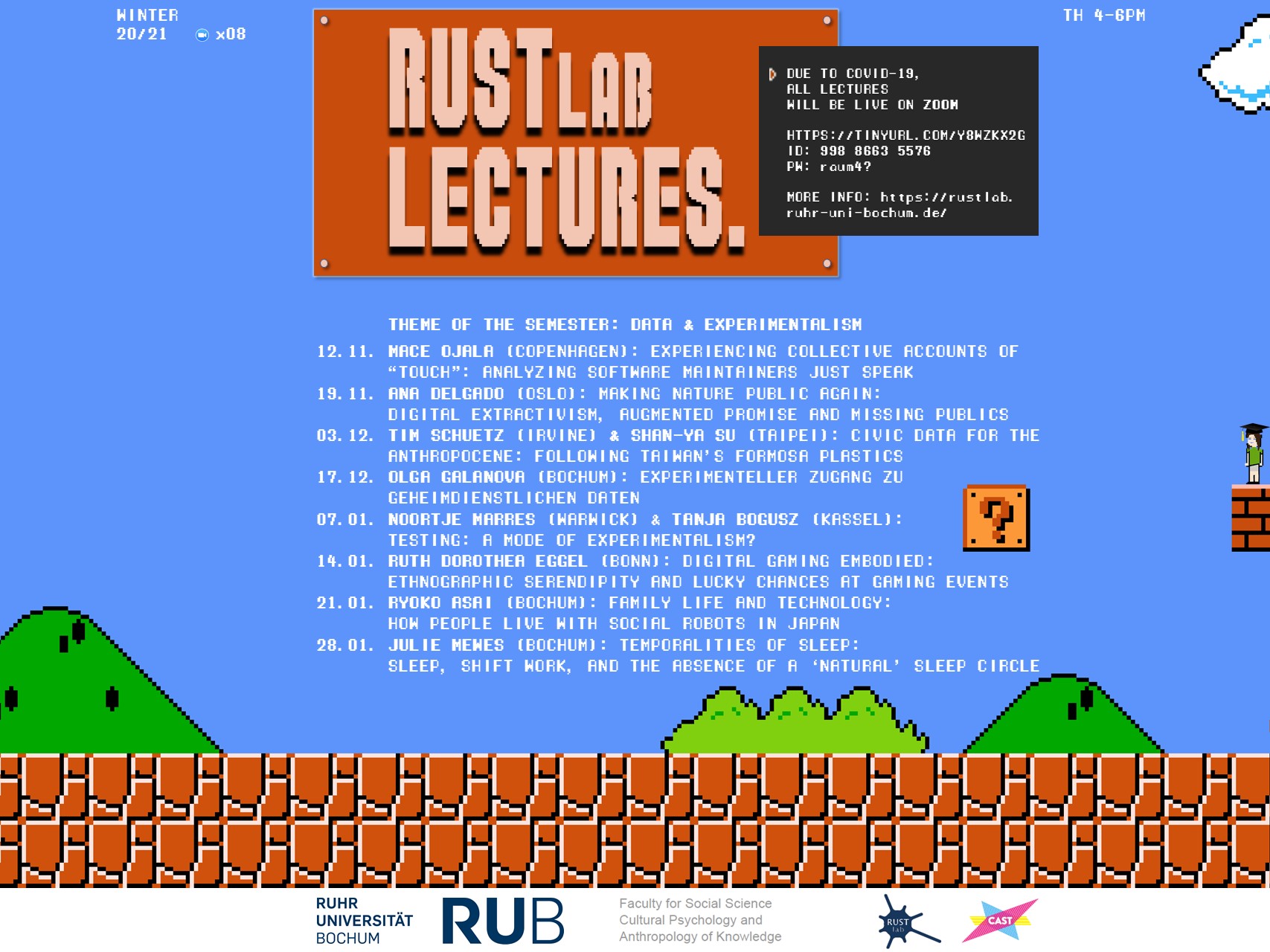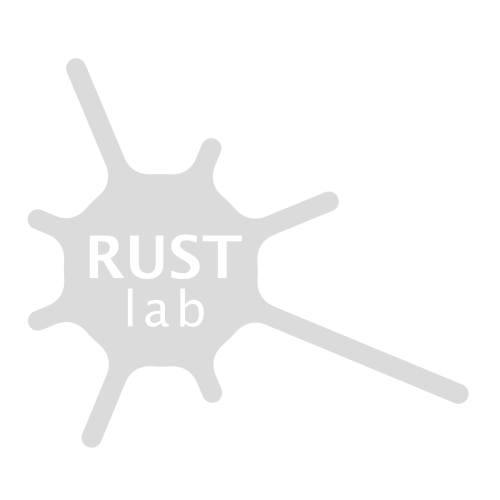Due to the positive feedback of the last semester, we are again holding our lecture series in an online format. The pandemic is still here, which is why this is the best format to choose. This semester, we have a guiding theme, which is: Data & Experimentalism. The lectures will be thursdays, 4pm CET (see time conversion). For more information, including PDFs and posters of previous lectures, go over here.

All lectures will be live on ZOOM
HTTPS://TINYURL.COM/Y8WZKX2G
ID: 998 8663 5576
PW: raum4?
Data and Experimentalism
Our tradition is ethnography. We used to be confident that we were close to people when accompanying their everyday lives for extended periods of time and that we thus learnt to know the world as they knew it. The world changes and people increasingly experience the world by way of technologies, through media and digital data. Are we still close to people, when shadowing their routine whereabouts? What are apt ways for social science, and ethnographers, to engage with a world that is characterised not only by digitalisation, but also by climate change, globalisation, pandemics, and the personal, social, natural and political unrest following from these? What is an anthropological laboratory in the midst of uncertain technoscientific worlds? The RUSTlab experiments with re-tooling social scientific practices for engaging with changing, distributed and heterogeneous socio-technical worlds. This includes moving from descriptive modes of inquiry to also include interventionist and experimental settings.
This semester we inquire about the tension between data and experimentalism. Experimentalism stems from the philosophy of pragmatism and John Dewey’s (1927) thinking in particular. This kind of pragmatism was developed in – and for – uncertain times. It draws attention to experience, testing and collaboration (Bogusz, 2018), thus: situating research in current problems and uncertainties (experience), revising methods and concepts in relation to these (testing), and including both lay publics and interdisciplinary experts in negotiating understandings and exploring possible shared futures (collaboration). We are particularly curious about how data – digital or other – as traces of the world we inquire can work as components of such an involvement (cf. Elgaard Jensen et al. 2020; Marres 2015). There is a tension between experimentalism and data, because the latter give the false impression of robust and unchangeable things, mediated by complicated technical infrastructures, which is why special experimentalist approaches need to be envisioned. How are experimentalist approaches already lived, where can they be supplemented, where do they seem out of place? How can ethnography adapt to the new affordances of digital data, also concerning its own research practice? How can we get involved in accessing data and building relevant partnerships?
Recent semesters our engagement with Data and Experimentalism grew out of our activities and our readings. We became inspired by Puig de la Bellacasa’s (2017) extension of Mol’s (2002) notion of care as a mode of involved and resonse-able research. Puig de la Bellacasa emphasises touch as a way of engaging with objects of study in addition to vision, which is especially necessary in uncertain times. Similar to Puig de la Bellacasa, Marres (2012) points to the ontological effects of material interventions and thus also of digital objects. She shaped our sensitivity towards inquiring how problems and publics are formed through digital engagements, and how these become political issues. Both directed us toward facilitating new relations with and through objects. We recently read Pandian (2019), who also suggests engaging with openings and possibilities already present in the current uneasy worlds.
We continue the conversations and activities with much other literature and the many people who have joined the RUSTlab in thinking about uncertain technoscientific worlds. This semester we specifically inquire into how pragmatist experimentalism can conceptually and practically help re-tooling social scientific practices, and how data may engender, contradict, combine or in other ways be involved in this.
